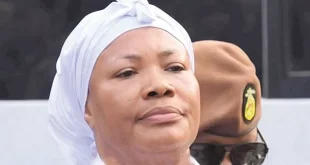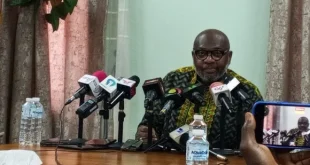“My government has fought and is fighting corruption not just in high-sounding words, but, actually, in concrete deeds. We have shunned mere exhortations and showy denunciations of unproved corruption. It has been a holistic approach. We have made institutional reforms, we have enacted additional, requisite laws, and we have resourced more adequately the accountability organs of state. Our fight against corruption has been grounded on legislative, financial and institutional action, and not on mere lip-service.”
When speaking at the Ghana Bar Association’s 2023 Bar Conference in Cape Coast on Monday, September 11, 2023, President of the Republic Nana Addo Dankwa Akufo-Addo spoke these exact remarks.
It is also undeniable that budgetary allocations for institutions actively engaged in public sector accountability, such as the Office of the Auditor-General, the Judiciary, Parliament, the Commission on Human Rights and Administrative Justice (CHRAJ), the Ghana Police Service, the Economic and Organized Crimes Office (EOCO), and the Financial Intelligence Centre, have seen unprecedented increases since that time, President Akufo-Addo said in his speech.
“At the end of 2022, the budgetary allocation to Parliament witnessed a one hundred percent (100%) increase, compared to what I inherited in 2016; the Police saw its budget increase by two hundred and seventy-four percent (274%) at the end of 2022, in comparison to 2016; the Audit Service recorded a two hundred and fifty-eight percent (258%) rise in its budgetary allocation at the end of 2022, as compared to 2016,” he said.
The President continued, “the budget of the Judiciary rose by thirty-six percent (36%) at the end of 2022, compared to 2016; the budget of the Office of the Attorney-General increased by one hundred and sixty-two percent (162%) at the end of 2022, compared to 2016; the budget of EOCO increased by forty-seven percent (47%) at the end of 2022, in comparison to 2016; the budget of the Financial Intelligence Centre increased by four hundred and forty-three percent (443%), compared to 2016; whilst the budget of CHRAJ increased by ninety-nine percent (99%) at the end of 2022, compared to 2016.”
These numbers, according to President Akufo-Addo, demonstrate his determination to make sure that state institutions that are important to the anti-corruption agenda are well equipped to carry out their responsibilities.
He claimed that his administration made a notable innovation in the area of investigating and prosecuting cases of corruption and crimes related to it in 2017 when it decided to create an Office of Special Prosecutor through the passage of the Office of Special Prosecutor Act, 2017 (Act 959).
According to President Akufo-Addo, the creation of the Office of Special Prosecutor is the most audacious step taken by any government under the 4th Republic to prosecute corruption in the executive branch of government.
“The monopoly of prosecutorial authority by an Attorney-General, hired or fired by a President, had been identified by some as a key factor allegedly standing in the way of law enforcement and prosecution as a credible tool in the fight against corruption before 2017,” the President said.
Despite the fact that the Special Prosecutor is appointed by the President, he asserted that the President cannot unilaterally remove the Special Prosecutor from his or her position, unlike in the case of the Attorney General.
According to him, Article 15 of Act 959 gives a Committee appointed by the Chief Justice the authority to fire the Special Prosecutor, with the President only following the Committee’s recommendations. He continued, “His or her independence of the President is, thereby, assured.”
The President mentioned the regime for declaring one’s assets as a tool for combating corruption and noted that it is a constitutional requirement that has been mostly met by officials of both his administrations.
“I am, however, of the candid opinion that existing legislation on corruption, relating to the conduct of public officers in Ghana, appears to be inadequate to deal extensively with public office accountability. The need to lay down a set of far-reaching and a more fit for purpose set of regulations for the conduct of public officers, which will give effect to the provisions of Chapter 24 of the Constitution on Conduct of Public Officers, is, in my view, now self-evident,” he added.
Source: Ghanatodayonline.com
 Ghanatodayonline.com News, Politics, Health, Education & More
Ghanatodayonline.com News, Politics, Health, Education & More




